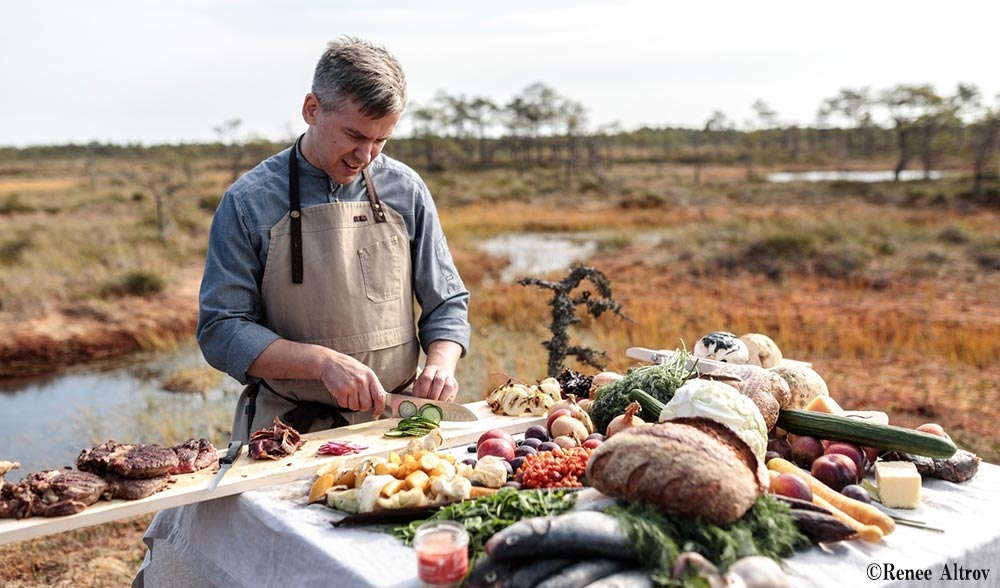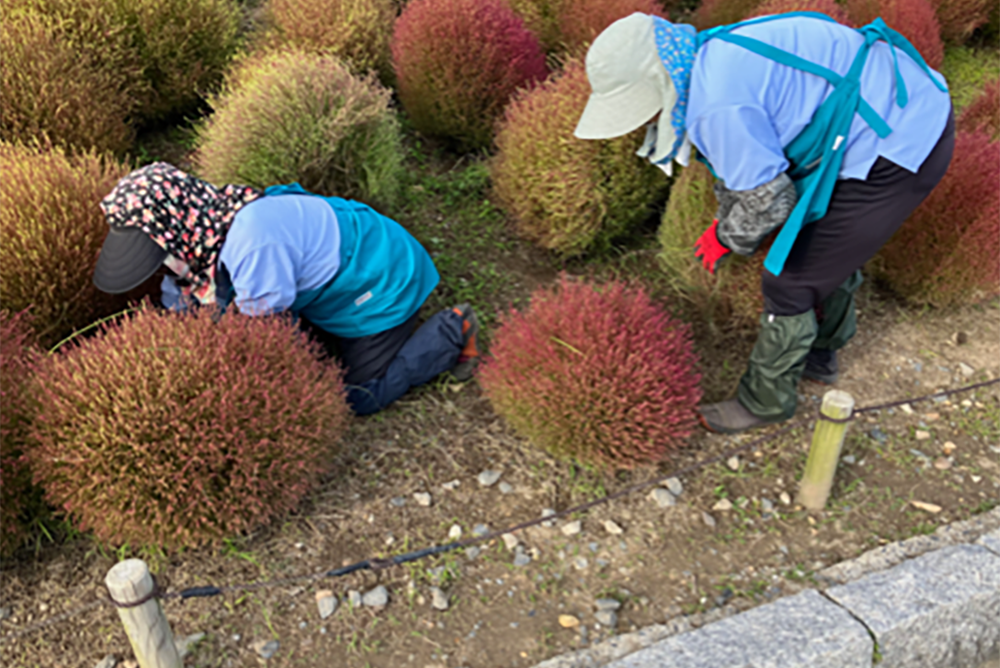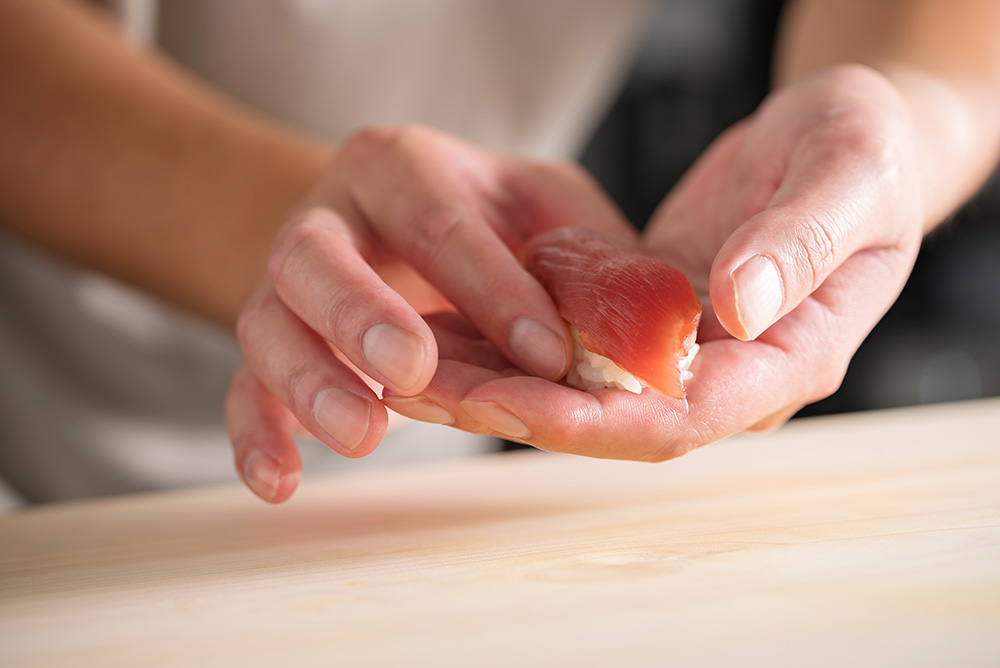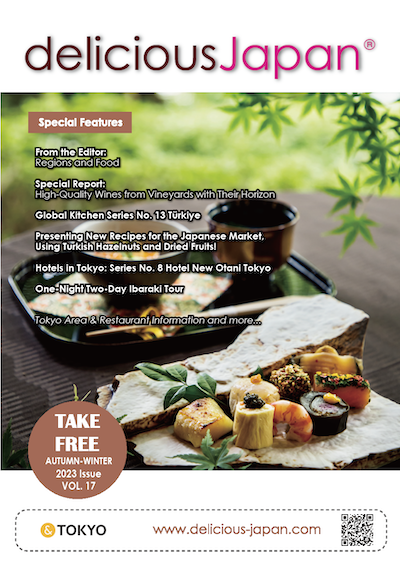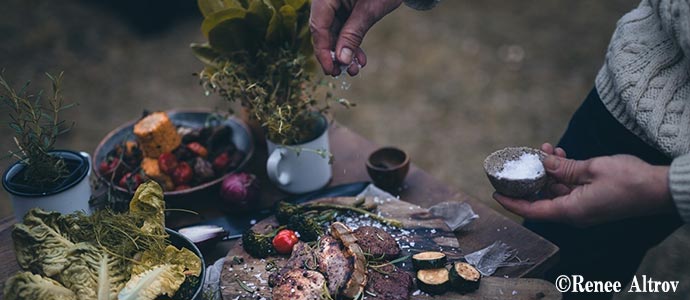
Global Kitchen Series No.10 - Estonia

Oliver Ait
Commercial Counsellor
Embassy of Estonia in Tokyo
My main mission as the Commercial Counsellor of the Embassy of Estonia in Tokyo is to help Estonian companies to enter the Japanese market. We assist Estonian enterprises in establishing contacts with Japanese companies, provide market information and hold different types of events and seminars. We also introduce investment opportunities in Estonia to Japanese companies and investors, since there is a growing interest towards Estonian active startup scene, digital society and innovation ecosystem.
Seven companies from Estonia ran a booth at FOODEX Japan 2022 for the first time.How were the results?This was the first time Estonia participated at FOODEX Japan at the national level and the experience was extremely good. The feedback we have seen from companies has been only positive.
We had a relatively large booth at FOODEX and gained a-lot of visibility. I have been personally very supportive about attending large scale events that have a good track record, high quality organisers and wide visibility. FOODEX Japan is definitely one of them and it didn’t disappoint - even during the COVID restrictions the event was held very professionally. Here I have to thank our good local partners like Global Media and JMA, who we have a very close relationship with. Estonian companies made a great amount of new contacts and interest towards Estonian products was high throughout the event and after that.
Hungary has an excellent geographical and climate conditions, nearly two thirds of our land is suitable for agricultural production. The fertile soil in Hungary is one of the best in the world and we have the largest underground fresh water reserves in Europe. Also, ingredients from Hungary are 100% GMO free, as the ban on GMO is laid down in our constitution.
I know there are some avid fans of your wine, for instance, Tokaji wine. Can you let us know in detail about your wine in Hungary?Our wine tradition is an integral part of Hungary’s national heritage. The Tokaj region that you have mentioned is most famous for a very unique type of sweet wine, the so called Aszú, that was once called the “the king of wines, and the wine of kings” by the Sun King, Louis XIV of France. However, the Tokaj region has excellent dry wines as well, like Furmint. Furmint is actually the dominant grape variety in Tokaj and it can produce incredibly complex and nice wines, it is gaining more and more international attention lately.
What are the main food products and beverages which are imported from Estonia to Japan?As a country that is known for its clean air and pure nature, we have a-lot to offer. For example, hand crafted cider from Estonian apples (Jaanihanso), natural honey from Estonian beekeepers (Artisan Honey and Honest Nektar), Estonian chocolate from Kalev and Roosiku Chocolate Factory and craft beer from Põhjala are all products that are extremely popular and have been performing well in Japanese market. Besides food related products there is also a growing interest towards Estonian natural cosmetics and design.
What are the features of Estonian products that you want to tell Japanese consumers?Estonia is relatively well known as a very advanced digital society, but this goes hand in hand with a healthy, well-balanced and non-wasteful lifestyle. In Japan, a-lot of emphasis is put on the freshness of what is on the table and in the bowl. In Estonia too, we prefer fresh foods and vegetables during the summer period. Even during the winter, we don’t forget the fact that the best and the healthiest food is organic and that's what we are emphasizing. Several years ago the World Health Organization ranked Estonia's air as some of the cleanest in the world and clean nature is our strong point - in our food industry we try to turn this advantage to our favour as much as we can.
In Japan, we talk a lot about food loss and Estonians have a similar way of thinking - we consume responsibly and it is reflected in our food culture too.
We have just finished conducting a public opinion poll on Estonia’s image here in Japan and not surprisingly many people were interested in learning more about Estonia as a tourism and food destination. Japanese seem to enjoy traveling and local gourmet food when on the road, so that nearly half of the respondents who had some previous knowledge about Estonia said that they would like to experience both in Estonia.
On the other hand, most of the people still don’t have a clear image of Estonian cuisine, so participating in exhibitions, opening pop-up shops, attending cultural events, doing media promotion and inviting people to Estonia to experience our food culture first hand are all tools that we should continue using.
In principle, our traditional kitchen is very simple - fish, meat, vegetables, dairy and rye bread. Everything that nature has to offer. We consume a great amount of potatoes and rye bread, which sounds as common as consuming rice in Japan, but we also have some foods that can offer a bit more avant-garde experience - bloody sausage or sült, for example. I’ll leave it to readers to find out what they actually are and how they taste when visiting Estonia.
Although I mentioned freshness, we also tend to enjoy pickles and soups (especially during the winter period). An aspect of our food culture that seems to resonate well with the Japanese consumers.
There are no restaurants at the moment, but we are very lucky to have people in Tokyo and Japan who have grown to love Estonian cuisine and are helping to introduce it to Japanese consumers. Last year Keiko Sasaki published the first Estonian cookbook in Japanese titled “The Estonian Home Cooking Recipes”. Sasaki san is also offering a chance to familiarise yourself with Estonian cooking through workshops that are available at http://estonianavi.com. Having participated in her events, I can wholeheartedly recommend them.
Last question. What do you like about Japanese food?I enjoy simple, but fresh food. Especially seafood and vegetables. I believe this is one of the strongest aspects of Japanese cuisine and many Estonians love that about the Japanese kitchen.
